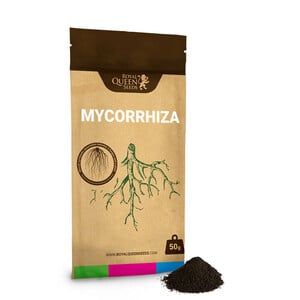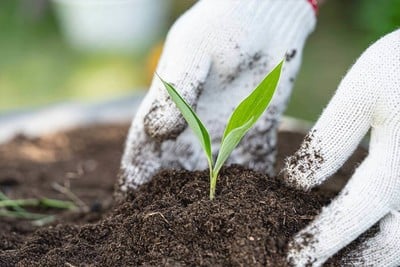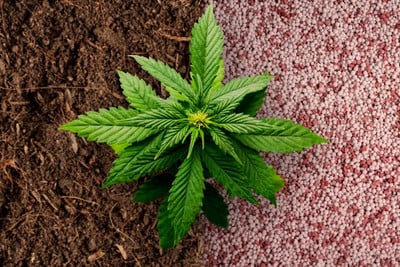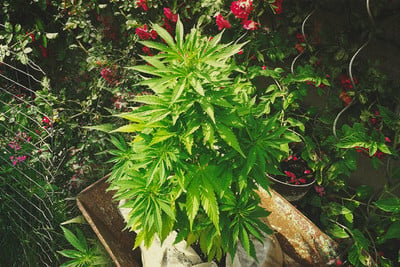.

Start Using Aloe Vera To Protect And Nourish Your Cannabis Crop
Aloe vera has a place in every cannabis garden. This luscious succulent produces a viscous gel that's loaded with nutrients and protective compounds.
Many cannabis growers are converting to organic methods to enhance soil health, increase garden biodiversity, improve harvests, and heal the environment as opposed to damage it. Organic gardening includes the use of a variety of plant species to fertilise crops, create compost, clone strains, deter pests, and attract beneficial organisms. One of these plant allies is aloe vera, a species that happens to benefit and assist the cannabis plant in many unique ways.
WHAT IS ALOE VERA?
Most people will know aloe vera[1] as an ingredient in many health supplements and cosmetic products. As a succulent plant species, aloe vera is an evergreen perennial native to the Arabian Peninsula, and now grows wild in tropical climates around the world. Aloe vera has been used by humans for thousands of years, and evidence of its use dates back to 16th century BCE in ancient Egypt.
The plant features large, thick, and tapered leaves that house a gel-like substance. The gel, leaf skins, and flowers are reported to offer numerous health benefits. Aloe is just as useful for humans as it is for cannabis plants.
HOW ALOE VERA CAN BENEFIT HUMANS
Research[2] has shown that extracts obtained from aloe leaf skins and flowers have antioxidant properties and may be able to tackle forms of bacteria known as Mycoplasma, which are immune to common antibiotics.
Further research[3] indicates that extracts from baby aloe shoots might be able to protect the skin from ultraviolet radiation.
Topical creams containing aloe have been shown to protect skin[4] damage resulting from radiation therapy. The gel is also associated with reducing pain when used as a dressing for burn wounds.
Animal research[5] using mice found that aloe vera reduces depression and enhances learning and memory. Extensive research and clinical trials are needed to confirm if these effects apply to humans.
Aloe vera juice also contains a massive array of beneficial nutrients, including vitamins B, C, E, and folic acid, along with minerals calcium, copper, chromium, sodium, selenium, magnesium, potassium, manganese, and zinc[6].
HOW ALOE VERA CAN BENEFIT CANNABIS PLANTS
But aloe vera isn’t just a herbal supplement for humans. The succulent can provide profound benefits to cannabis plants via a wide range of nutrients, helping[7] to defend against pests and disease, and enhance root development.
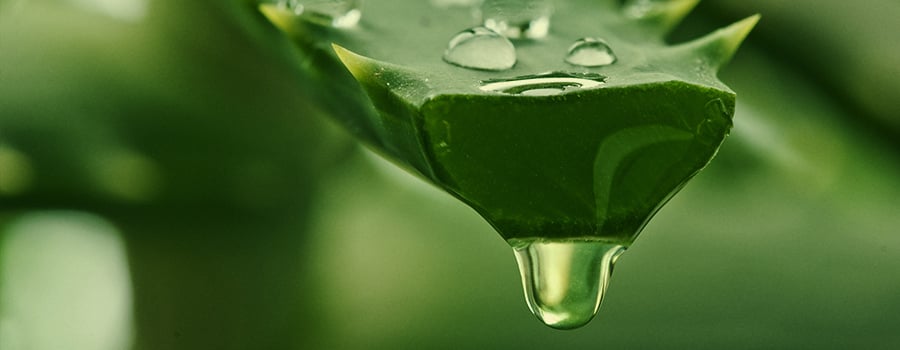
USE ALOE VERA AS A FOLIAR SPRAY
Organic growers use aloe vera in foliar sprays to provide their crop with supplementary micronutrients such as magnesium, calcium, zinc, and manganese. Foliar spraying[8] is an effective way to provide these nutrients to plants, as they are rapidly absorbed through the surfaces of leaves. The speed of this form of nutrient administration makes foliar spraying useful when the first signs of deficiency are detected. Aloe vera can also be used to provide amino acids such as lysine and glutamine, and enzymes like cellulase and amylase.
Foliar spraying also increases a plant's relationship with surrounding life, which enhances the biodiversity of the soil. Nutrient uptake through the foliage causes plants to release sugary exudates into the rhizosphere below. These carbohydrate molecules attract beneficial microorganisms such as mycorrhizal fungi that assist plants in nutrient uptake.
To make a foliar spray using aloe vera, mix two teaspoons of fresh aloe gel with 4.5 litres of water and administer the spray immediately using the “mist” setting on your pressure sprayer.
ALOE VERA HELPS PROTECT AGAINST DISEASE AND ENVIRONMENTAL STRESS
Aloe vera contains numerous compounds that can help protect plants against disease. The succulent[9] contains high levels of acemannan, a polysaccharide that exerts antiviral, antibacterial, and antifungal effects[10].
Aloe vera also offers high doses of saponins, which have been found to offer protection against threats like detrimental microbes, fungi, and mould. In addition to disease prevention, saponins help rejuvenate the soil and allow water to penetrate the roots. Saponins[11] are also toxic to insects and help deter pest invasions.
Salicylic acid is another beneficial substance found within aloe vera that triggers a response in plants called systemic acquired resistance (SAR)[12]. This response is similar to the immune response that occurs in animals following exposure to a pathogen. SAR can be triggered by a wide range of pathogens and offers long-lasting protection. Salicylic acid is required by plants to act as a signalling molecule during SAR.
ALOE VERA IS A BOOSTER FOR ROOT HEALTH AND CLONING
The immense nutrient profile of aloe vera makes the plant an excellent supplement for root health, development, and cloning. It stimulates root growth, accelerates cell division, and increases nutrient and water uptake. Increased root health results in stronger root systems, allowing plants to become more resilient to environmental factors such as drought and harsh winds.
Aloe vera can also be used by organic gardeners as a rooting hormone during propagation and cloning. Salicylic acid sees regular use as a rooting agent for seedlings, and stimulates cuttings to begin producing roots too. This can help speed-up the cloning process and increase the amount of cuttings that produce roots.
To make your own natural rooting formula, mix 55 grams of fresh aloe into 4.5 litres of water, then add one teaspoon of potassium silicate. Dip the cut end of fresh cuttings into the solution, then place into rooting blocks.
GROW YOUR OWN SUPPLY OF ALOE VERA
Aloe vera is an inexpensive resource—potentially free if you have the room to grow it. The plant also produces offspring on a regular basis, which appears at its base. These can be replanted to increase your crop. It’s a forgiving species, and easy to cultivate indoors or outdoors within a mild to warm climate. Aloe vera is frost-sensitive and needs to be moved indoors if you live in a region with harsh winters. Plants prefer morning and midday sun along with afternoon shade, so try and find a spot that receives this periodic light in your garden. Plants need watering regularly, but require well-draining soil to prevent root rot.
- Aloe vera: a wonder plant its history, cultivation and medicinal uses https://www.phytojournal.com
- ANTIFUNGAL AND ANTIBACTERIAL ACTIVITY OF ALOE VERA PLANT EXTRACT | Biological and Clinical Sciences Research Journal http://bcsrj.com
- https://onlinelibrary.wiley.com/doi/abs/10.1002/ptr.4943
- Preventing the acute skin side effects in patients treated with radiotherapy for breast cancer: the use of corneometry in order to evaluate the protective effect of moisturizing creams | Radiation Oncology | Full Text https://ro-journal.biomedcentral.com
- Aloe vera improves memory and reduces depression in mice - PubMed https://www.ncbi.nlm.nih.gov
- Evaluation of the Nutritional and Metabolic Effects of Aloe vera - Herbal Medicine - NCBI Bookshelf https://www.ncbi.nlm.nih.gov
- Aloe Vera Extract Gel-Biosynthesized Selenium Nanoparticles Enhance Disease Resistance https://pubs.acs.org
- Foliar fertilization in vine mineral nutrient management programs. https://www.semanticscholar.org
- ANTIFUNGAL AND ANTIBACTERIAL ACTIVITY OF ALOE VERA PLANT EXTRACT | Biological and Clinical Sciences Research Journal http://bcsrj.com
- Antifungal and Allelopathic Activities of Leaves Extracts of Aloe vera https://jjbs.hu.edu.jo
- Saponins and their role in biological processes in plants | SpringerLink https://link.springer.com
- Systemic acquired resistance - PubMed https://www.ncbi.nlm.nih.gov


























